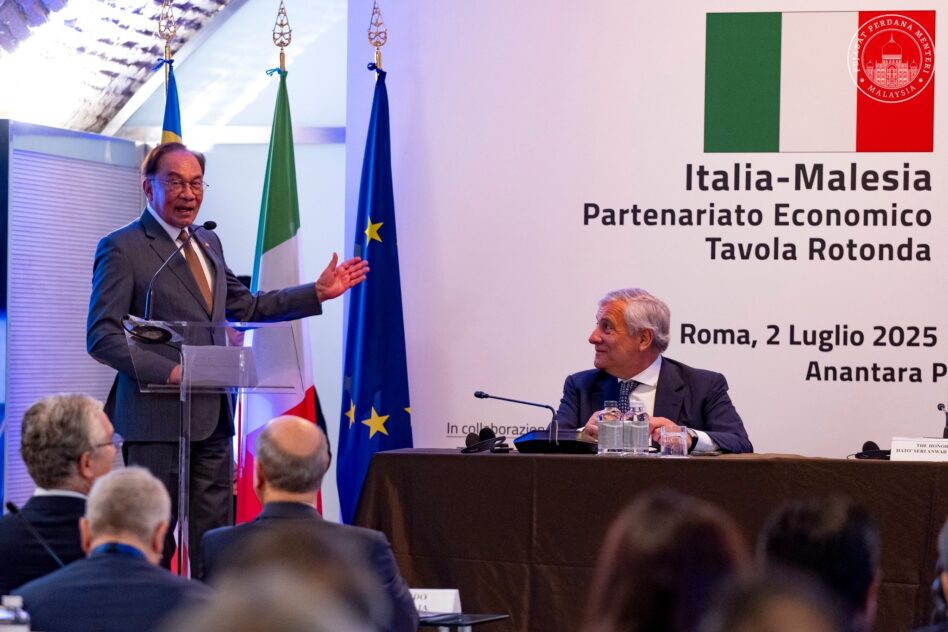By Amanda Yeo
DESPITE the recent signing of the Regional and Comprehensive Economic Partnership (RCEP) with Asean Plus Three, Australia and New Zealand on Nov 15, Sabah is still relatively lagging behind in digital connectivity as compared to other Malaysian states as well as neighbouring countries.
This can be seen in the rural areas of Sabah where the villagers have to pull up mineral bottles containing mobile phones with their “hot spot” function switched on – obtaining minimal cellular signals via at least 10 metres high of bamboo poles.
The COVID-19 pandemic further exacerbated the difficulties among the rural students in accessing online learning materials when schools were closed during the movement control order (MCO) period and currently, the conditional MCO period.
Although rural entrepreneurs in Sabah were very keen in adopting digitalisation, they could not move forward due to unstable internet connection in their villages.
As there is insufficient digital infrastructure in the state, Sabah recorded 81.2 per 100 inhabitants for broadband penetration – lower than the national average of 127.4, in the first quarter of 2020, according to the Malaysian Communications and Multimedia Commission (MCMC).
When the video of ‘Treetop Girl’ Veveonah taking an online examination in a treetop shelter in Pitas went viral, it has brought attention to the MCMC, local politicians and even Prime Minister Tan Sri Muhyiddin Yassin.
Former Chief Minister of Sabah, Datuk Seri Dr Salleh Said Keruak who is now the newly-elected legislator for Usukan expressed his concern by indicating the importance of tackling digital poverty in Sabah during the recent Sabah state assembly sitting.
He further explained digital poverty is a state of deprivation, especially in terms of information and communication technology (ICT) in the community, either due to the lack of ICT infrastructure or ICT skills.
Even though the person already has ICT devices such as a computer, smartphone and high-speed Internet, he or she could still be digitally poor due to lack of proficiency in using ICT.
He added the majority of the population in Sabah are too familiar with face-to-face meetings and has yet to embrace the new norms such as working from home and doing business online.
In order to resolve digital poverty in Sabah, the state government has to fulfil its Aku Janji Pledge and utilise the estimated allocation of RM2.45 bil National Digital Network Initiative (Jendela) project to transform Sabah’s digital infrastructure under the 12th Malaysia Plan (2021-2025).
Following are the initiatives promised under the current administration:
- MCMC will build 50 telecommunication towers under phase one of the National Fiberisation and Connectivity Plan (NFCP 1) project throughout Sabah this year;
- Improve internet connectivity in Sabah by supplying 4G and 5G bands in 96.9% of the state by 2022;
- A total of 382 new communication towers will be built and 924 communication transmitting devices will be upgraded and implemented through Universal Service Provision Programme (USP);
- 35 new towers and 1,048 communication transmitters in existing towers will also be commercially upgraded by service providers to increase 4G coverage;
- The fixed line fibre optic coverage will also be expanded to cover 251,166 premises across Sabah; and
- Construct 133 Community Internet Centres costing RM13 mil around the state to create new job opportunities through e-commerce.
In addition, the government did introduce some initiatives under Budget 2021 to boost the digitalisation of the country are as follows:
- MCMC will allocate RM7.4 bil for the year 2021 and 2022 to build and upgrade broadband services;
- Allocate RM500 mil to implement Jendela to ensure the connectivity of 430 schools throughout Malaysia covering all states;
- RM1 bil Industrial Digitalisation Transformation Scheme will be provided through Bank Pembangunan Malaysia to boost digitalisation activities; and
- Additional funds amounting to RM150 mil will be provided under the SME Digitalisation Grant Scheme and the Automation Grant. The eligibility condition for these Grants has also been relaxed for micro SMEs and start-ups that have been operating for at least six months.
However, the effectiveness of these initiatives is still unclear for Sabahans. Therefore, the state government needs to utilise its newly established Science, Technology and Innovation Ministry that replaced the Education and Innovation Ministry in the previous state administration to resolve the digital poverty in Sabah.
EMIR Research has several policy suggestions to the Sabah state government. These are:
- Expand fibre optic networks, together with the commercial development of communication infrastructure in the rural areas of Sabah, bringing connectivity to more rural households and entrepreneurs on top of bridging the digital divide between urban and rural areas;
- Work closely with MCMC as well as local authorities to ensure there is no variation in quality and cost of building digital infrastructure in Sabah;
- Encourage private investment to develop digital infrastructure in Sabah besides reducing complication on local authority procedures;
- Work closely with schools to ensure teachers and students can access online learning materials in or outside of schools around Sabah;
- Strategise with the Malaysian Digital Economy Cooperation (MDEC) and Malaysian Global Innovation & Creativity Centre (MaGIC) to empower rural entrepreneurs in digitalisation, enabling them to create e-platform and sell product and services within and outside of Sabah.
By assembling incredible breadth of four industry trailblasers, it would strengthen the depth and breadth of MDEC’s expertise to benefit rural and urban needs while accelerating MDEC’s positioning as the ‘Heart of Digital Asean’, as championed by the chairman of MDEC, Datuk Wira Dr. Rais Hussin.
With a quantum leap of strategic investment in digital infrastructure, it would increase gross domestic product per capita, eradicate poverty, create new jobs, enable capacity building and upskilling in the state – making Sabah a developed state by 2030.
Moreover, by advocating digitalisation agenda in the state, Sabah would be able to utilise the economic advantage from RCEP and will be ready to create more business opportunities when Indonesia’s capital city relocates from Java to East Kalimantan by 2024. – Nov 30, 2020
Amanda Yeo is Research Analyst at EMIR Research, an independent think tank focused on strategic policy recommendations based on rigorous research
The views expressed are solely of the author and do not necessarily reflect those of Focus Malaysia.









